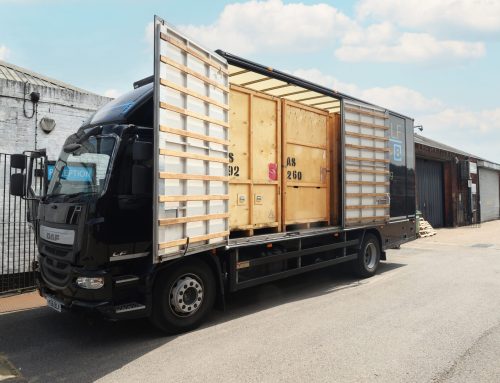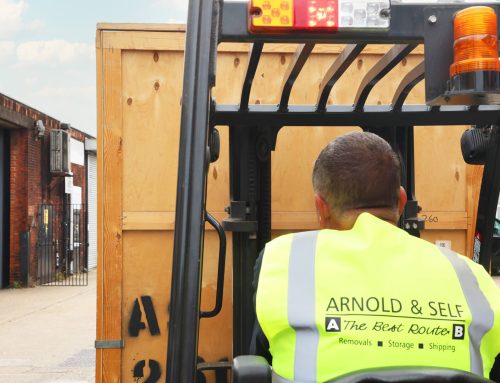Welcome to the ultimate guide on planning your office relocation in London! Moving offices is a significant undertaking whether you’re scaling up, downsizing, or just looking for a change of scenery. It’s not just about physical logistics; it’s about ensuring a smooth transition for your team, minimising downtime, and managing costs.
If you’re feeling overwhelmed by the thought of planning an office move in the bustling heart of London, you’re in the right place. We’re here to guide you through the process, addressing common concerns and equipping you with practical advice to make your move seamless.
Understanding the Basics of Office Relocation Company
London’s unique landscape presents specific challenges and opportunities regarding office relocation. Here’s what you need to know to get started:
- Navigating the City: Understand the logistical challenges of moving to one of the world’s busiest cities. From traffic restrictions to parking permits, planning every detail is crucial.
- Setting a Realistic Timeline: Office moves don’t happen overnight. Setting a realistic timeline is essential for a smooth transition, allowing you to coordinate with commercial movers and plan for minimal disruption.
Choosing the Right Moving Partner
Your choice of office removal in London can make or break your moving experience. Consider the following:
- Experience and Expertise: Look for movers with specific experience in office relocations in London. They’ll be well-equipped to handle the unique challenges of the city.
- Comprehensive Services: Whether you’re a small office mover or a large corporation, choose a company that offers a range of services, from packing to furniture installation.
Budgeting for Your Move
Understanding and managing your office relocation cost is crucial. Here are some tips for budgeting effectively:
- Get Multiple Quotes: Don’t settle for the first quote you receive. Shop around and compare prices from various office moving companies in London.
- Consider Hidden Costs: Remember to factor in potential hidden costs like storage, insurance, and any necessary repairs or modifications in your new space.
Preparing Your Team for the Move
A successful office move is as much about logistics as it is about people. Here’s how to prepare your team:
- Communicate Early and Often: Keep your team informed about the move’s progress and what it means for them.
- Involve Them in the Process: Whether it’s packing their desk or helping to design the new layout, involving your team can make the transition smoother and more positive.
Deeper Dive: Navigating Your Office Relocation
With a foundational understanding of the process, it’s time to delve deeper into the strategies and nuances that make for a successful office move in London. This section will cover more detailed aspects, providing actionable advice and solutions to common and complex challenges.
Timing Your Move for Success
Timing can significantly impact the cost and stress of your move. Consider the following:
- Off-Peak Advantage: Moving during less busy times can reduce costs and logistical headaches.
- Seasonal Considerations: Weather and holidays can affect your move; plan accordingly to avoid surprises.
Detailed Planning: A Step-by-Step Approach
A detailed plan is your roadmap to a successful office relocation. Here’s how to refine your strategy:
- Inventory Assessment: Conduct a thorough inventory of your office assets. Decide what will move, what will be sold, and what might need special handling.
- Task Allocation: Assign specific tasks and responsibilities to team members. Clear roles can streamline the process and ensure accountability.
Selecting and Working with Movers
Your choice of movers is critical. Here’s how to ensure a good match:
- Reputation and Reviews: Research potential movers, focusing on those with excellent reviews and a solid reputation in office relocations.
- Transparent Quotations: Ensure the quotes you receive are comprehensive and transparent. Avoid companies that are vague about costs or potential additional fees.
Addressing Special Considerations
Every office move has its unique challenges. Here are some special considerations you might face:
- IT and Infrastructure: Plan for the safe relocation of your IT equipment. Consider hiring specialists if necessary.
- Change Management: Prepare for the human aspect of change. Offer support and resources to help your team adapt to the new environment.
Ensuring a Smooth Transition
The final stretch of your move is critical. Here’s how to ensure it goes smoothly:
Final Checks and Balances
- Final Walkthrough: Conduct a final walkthrough of your old office to ensure nothing is left behind.
- Emergency Plan: Have a contingency plan for last-minute challenges or delays.
Settling into Your New Space
Moving in is just the beginning. Here’s how to settle effectively:
- Immediate Needs: Prioritise setting up essential services and areas so work can resume quickly.
- Feedback Loop: Encourage feedback from your team on the new space and the moving process. It can be invaluable for future planning.
Conclusion:
Moving an office is a complex yet manageable task that requires careful planning, coordination, and execution. From understanding the unique challenges of London’s landscape to selecting the right moving partner and ensuring a smooth transition for your team, each step is crucial to the success of your move.
Remember, the key to a seamless office relocation is thorough preparation and clear communication. Planning each detail, from the initial inventory assessment to the final setup in your new space, sets the foundation for a successful and stress-free move. When challenges arise, as they inevitably will, a solid plan and a flexible approach will help you navigate through them.
For those looking for more in-depth support or tailored advice, discover our specialised services at Arnold & Self, which are dedicated to making your office relocation as smooth and efficient as possible, with a team of experts ready to assist you at every turn.



 020 8401 8778
020 8401 8778 





